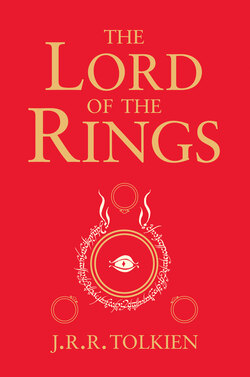Читать книгу The Lord of the Rings - J. R. R. Tolkien - Страница 11
3
Of the Ordering of the Shire
ОглавлениеThe Shire was divided into four quarters, the Farthings already referred to, North, South, East, and West; and these again each into a number of folklands, which still bore the names of some of the old leading families, although by the time of this history these names were no longer found only in their proper folklands. Nearly all Tooks still lived in the Tookland, but that was not true of many other families, such as the Bagginses or the Boffins. Outside the Farthings were the East and West Marches: the Buckland (p. 98); and the Westmarch added to the Shire in S.R. 1452.
The Shire at this time had hardly any ‘government’. Families for the most part managed their own affairs. Growing food and eating it occupied most of their time. In other matters they were, as a rule, generous and not greedy, but contented and moderate, so that estates, farms, workshops, and small trades tended to remain unchanged for generations.
There remained, of course, the ancient tradition concerning the high king at Fornost, or Norbury as they called it, away north of the Shire. But there had been no king for nearly a thousand years, and even the ruins of Kings’ Norbury were covered with grass. Yet the Hobbits still said of wild folk and wicked things (such as trolls) that they had not heard of the king. For they attributed to the king of old all their essential laws; and usually they kept the laws of free will, because they were The Rules (as they said), both ancient and just.
It is true that the Took family had long been pre-eminent; for the office of Thain had passed to them (from the Oldbucks) some centuries before, and the chief Took had borne that title ever since. The Thain was the master of the Shire-moot, and captain of the Shire-muster and the Hobbitry-in-arms; but as muster and moot were only held in times of emergency, which no longer occurred, the Thainship had ceased to be more than a nominal dignity. The Took family was still, indeed, accorded a special respect, for it remained both numerous and exceedingly wealthy, and was liable to produce in every generation strong characters of peculiar habits and even adventurous temperament. The latter qualities, however, were now rather tolerated (in the rich) than generally approved. The custom endured, nonetheless, of referring to the head of the family as The Took, and of adding to his name, if required, a number: such as Isengrim the Second, for instance.
The only real official in the Shire at this date was the Mayor of Michel Delving (or of the Shire), who was elected every seven years at the Free Fair on the White Downs at the Lithe, that is at Midsummer. As mayor almost his only duty was to preside at banquets, given on the Shire-holidays, which occurred at frequent intervals. But the offices of Postmaster and First Shirriff were attached to the mayoralty, so that he managed both the Messenger Service and the Watch. These were the only Shire-services, and the Messengers were the most numerous, and much the busier of the two. By no means all Hobbits were lettered, but those who were wrote constantly to all their friends (and a selection of their relations) who lived further off than an afternoon’s walk.
The Shirriffs was the name that the Hobbits gave to their police, or the nearest equivalent that they possessed. They had, of course, no uniforms (such things being quite unknown), only a feather in their caps; and they were in practice rather haywards than policemen, more concerned with the strayings of beasts than of people. There were in all the Shire only twelve of them, three in each Farthing, for Inside Work. A rather larger body, varying at need, was employed to ‘beat the bounds’, and to see that Outsiders of any kind, great or small, did not make themselves a nuisance.
At the time when this story begins the Bounders, as they were called, had been greatly increased. There were many reports and complaints of strange persons and creatures prowling about the borders, or over them: the first sign that all was not quite as it should be, and always had been except in tales and legends of long ago. Few heeded the sign, and not even Bilbo yet had any notion of what it portended. Sixty years had passed since he set out on his memorable journey, and he was old even for Hobbits, who reached a hundred as often as not; but much evidently still remained of the considerable wealth that he had brought back. How much or how little he revealed to no one, not even to Frodo his favourite ‘nephew’. And he still kept secret the ring that he had found.
